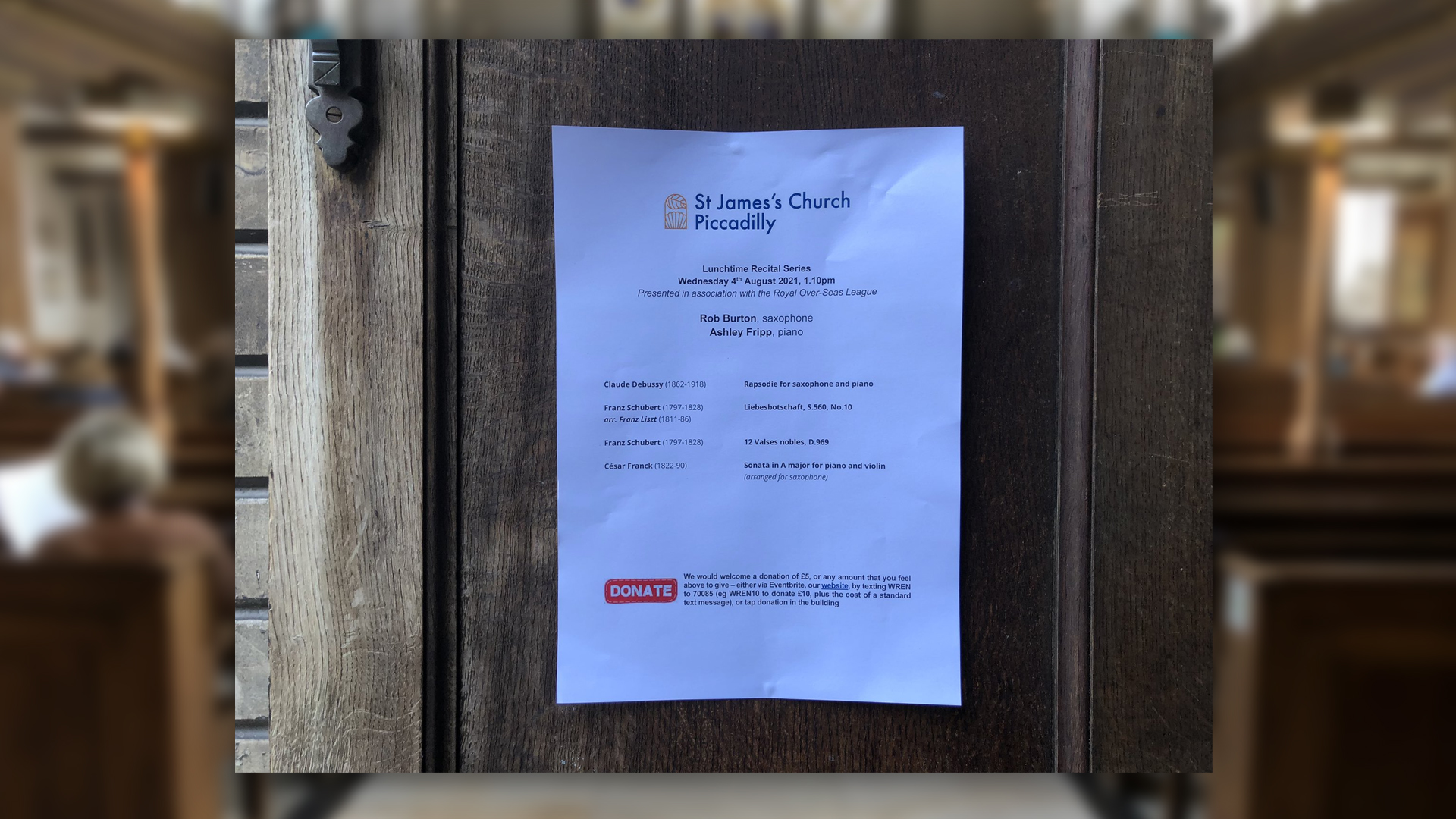Tag: Rob Burton
-

Saxophonist Rob Burton with pianist Ashley Fripp at St James Piccadilly
Blooming upper register notes and fireworky arpeggiated leaps made Rob Burton’s appearance at St James Piccadilly a real delight earlier today.
-

Review: Lambeth Wind Orchestra and saxophonist Rob Burton play Rhapsodies and Fantasias
A demanding programme of unfamiliar and invigorating works for wind orchestra including a cracking show piece for saxophonist Rob Burton.